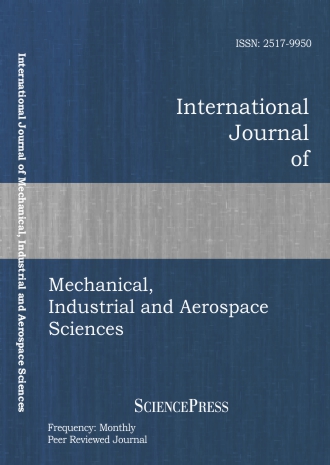
Scholarly
Volume:9, Issue: 7, 2015 Page No: 1333 - 1339
International Journal of Mechanical, Industrial and Aerospace Sciences
ISSN: 2517-9950
1275 Downloads
Mixing Behaviors of Shear-Thinning Fluids in Serpentine-Channel Micromixers
This study aims to investigate the mixing behaviors of deionized (DI) water and carboxymethyl cellulose (CMC) solutions in C-shaped serpentine micromixers over a wide range of flow conditions. The flow of CMC solutions exhibits shear-thinning behaviors. Numerical simulations are performed to investigate the effects of the mean flow speed, fluid properties and geometry parameters on flow and mixing in the micromixers with the serpentine channel of the same overall channel length. From the results, we can find the following trends. When convection dominates fluid mixing, the curvature-induced vortices enhance fluid mixing effectively. The mixing efficiency of a micromixer consisting of semicircular C-shaped repeating units with a smaller centerline radius is better than that of a micromixer consisting of major segment repeating units with a larger centerline radius. The viscosity of DI water is less than the overall average apparent viscosity of CMC solutions, and so the effect of curvature-induced vortices on fluid mixing in DI water is larger than that in CMC solutions for the cases with the same mean flow speed.
References:
[1] J. A. Pathak, D. Ross, and K. B. Migler, “Elastic flow instability, curved